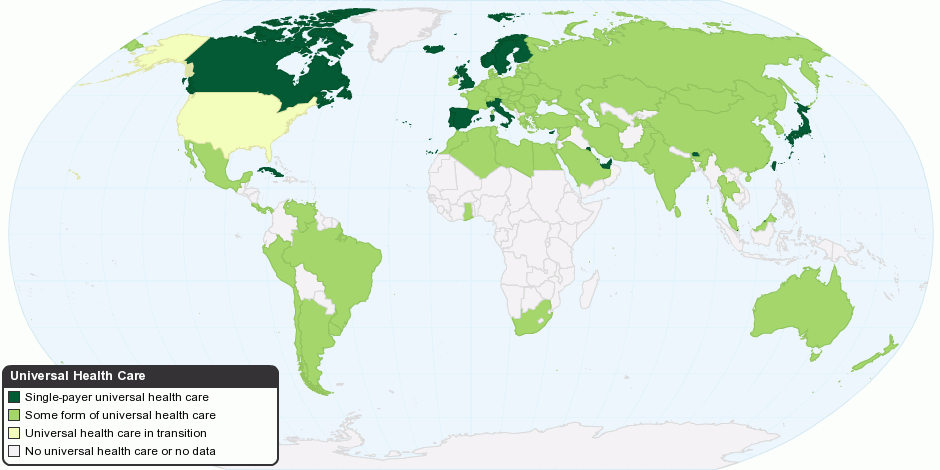
COHN: Republicans: We'll have that Obamacare alternative soon! Really! "You know that Obamacare alternative, the one that House Republicans promised to unveil in April? Their leaders announced on Tuesday that it's not ready just yet. This should surprise exactly nobody....One reason for the lack of real action is that embracing a plan would force Republicans to commit to the real-life tradeoffs that any reform plan would require....But there are other reasons Republicans may find it hard to craft an alternative. The general idea of the Affordable Care Act -- creating a competitive private market, through which people choose plans and weigh choices of cost and coverage individually -- is pretty much the only way to achieve universal coverage through private insurance....Republicans are finally, if grudgingly, recognizing that the Affordable Care Act is here to stay." Jonathan Cohn in The New Republic.
Conservative experts wonder how to coexist with Obamacare. Sahil Kapur in Talking Points Memo.
BLOOMBERG VIEW: Medicare's wasted advantage. "Anyone worried about the cost of health care in the U.S. should view this week's capitulation on Medicare Advantage with concern. Faced with a lobbying campaign that health insurers have described as their 'largest ever,' the federal government backed down from next year's proposed cuts to the program, which pays private insurers to deliver Medicare benefits. If the government has this much trouble trimming a useless subsidy for the insurance industry, it will have a hard time being frugal when it comes to health spending that actually matters." The Editors.
LOS ANGELES TIMES: Medicare's real doctor payment problem. "The news that a small percentage of the country's physicians collected billions of dollars from Medicare in a single year may or may not be a testament to individual greed; some of the top recipients are under investigation for allegedly bilking the system, while others work long hours delivering costly care. But it is a powerful reminder that the program needs to stop rewarding doctors for the quantity of care they deliver rather than the quality. Happily, there's a bipartisan plan to do just that; unhappily, lawmakers haven't been able to agree on how to cover its cost. If Congress needed any further incentive to settle its differences, the fact that 1,000 doctors raked in $3 billion from Medicare should provide it." Editorial Board.
More evidence that Obamacare is getting to people who need it? Dylan Scott in Talking Points Memo.
AIDS patients flock to Obamacare. Julie Appleby in The Daily Beast.
About those who want bigger Obamacare. Jonathan Bernstein in Bloomberg View.
CHICAGO TRIBUNE: Important sunshine from Medicare data release. "Medicare, the federal health care system for the aged that spends more than $500 billion a year, faces an uncertain future. It desperately needs to be more efficient. The data released Wednesday suggest this system has a long, long way to go to control its costs. Now, high Medicare payments to particular doctors or institutions are not by definition signs of waste or fraud. Some doctors justifiably earn more because they're trained in certain specialties. Some treat patients who require more constant care. There are major regional variations in how doctors practice. Americans want their doctors to be good. High compensation draws talented people to medicine and to Medicare. They also want Medicare to survive ... but that's going to require a far more efficient system. The release of this data is an important step toward that goal." Editorial Board.
MULLIGAN: The power of Sebelius. "In setting the 2015 calendar parameters for health plans and employers, Kathleen Sebelius, the secretary of health and human services, quietly did some creative but questionable arithmetic that forced taxpayers to give still more help to businesses and people who buy health insurance....Perhaps taxpayers of the future will remember March 11, 2014, as the day when one cabinet secretary added billions of dollars to the deficit." Casey B. Mulligan in The New York Times.
No comments:
Post a Comment